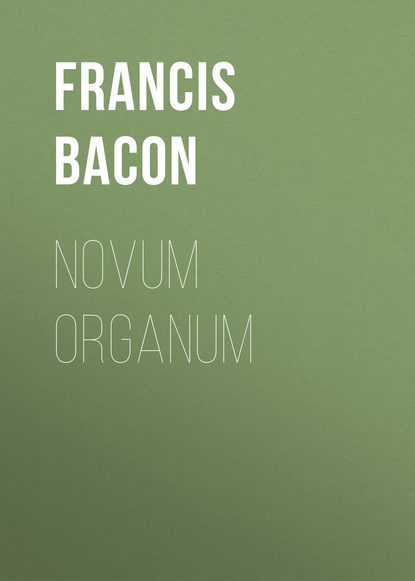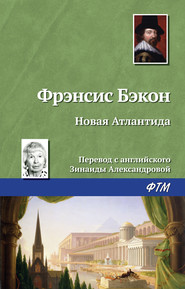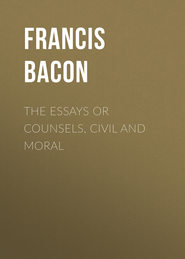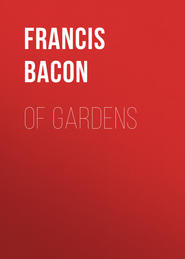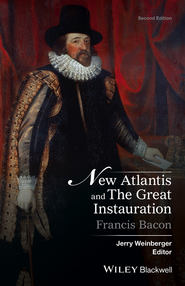По всем вопросам обращайтесь на: info@litportal.ru
(©) 2003-2024.
✖
Novum Organum
Настройки чтения
Размер шрифта
Высота строк
Поля
We cannot see how these idols have less to do with sophistical paralogisms than with natural philosophy. The process of scientific induction involves only the first elements of reasoning, and presents such a clear and tangible surface, as to allow no lurking-place for prejudice; while questions of politics and morals, to which the deductive method, or common logic, as Bacon calls it, is peculiarly applicable, are ever liable to be swayed or perverted by the prejudices he enumerates. After mathematics, physical science is the least amenable to the illusions of feeling; each portion having been already tested by experiment and observation, is fitted into its place in the system, with all the rigor of the geometrical method; affection or prejudice cannot, as in matters of taste, history or religion, select fragmentary pieces, and form a system of their own. The whole must be admitted, or the structure of authoritative reason razed to the ground. It is needless to say that the idols enumerated present only another interpretation of the substance of logical fallacies. —Ed.
11
The propensity to this illusion may be viewed in the spirit of system, or hasty generalization, which is still one of the chief obstacles in the path of modern science. —Ed.
12
Though Kepler had, when Bacon wrote this, already demonstrated his three great laws concerning the elliptical path of the planets, neither Bacon nor Descartes seems to have known or assented to his discoveries. Our author deemed the startling astronomical announcements of his time to be mere theoretic solutions of the phenomena of the heavens, not so perfect as those advanced by antiquity, but still deserving a praise for the ingenuity displayed in their contrivance. Bacon believed a hundred such systems might exist, and though true in their explanation of phenomena, yet might all more or less differ, according to the preconceived notions which their framers brought to the survey of the heavens. He even thought he might put in his claim to the notice of posterity for his astronomical ingenuity, and, as Ptolemy had labored by means of epicycles and eccentrics, and Kepler with ellipses, to explain the laws of planetary motion, Bacon thought the mystery would unfold itself quite as philosophically through spiral labyrinths and serpentine lines. What the details of his system were, we are left to conjecture, and that from a very meagre but naïve account of one of his inventions which he has left in his Miscellany MSS. —Ed.
13
Hinc elementum ignis cum orbe suo introductum est. Bacon saw in fire the mere result of a certain combination of action, and was consequently led to deny its elementary character. The ancient physicists attributed an orbit to each of the four elements, into which they resolved the universe, and supposed their spheres to involve each other. The orbit of the earth was in the centre, that of fire at the circumference. For Bacon’s inquisition into the nature of heat, and its complete failure, see the commencement of the second book (#pgepubid00006) of the Novum Organum. —Ed.
14
Robert Fludd is the theorist alluded to, who had supposed the gravity of the earth to be ten times heavier than water, that of water ten times heavier than air, and that of air ten times heavier than fire. —Ed.
15
Diagoras. The same allusion occurs in the second part of the Advancement of Learning, where Bacon treats of the idols of the mind.
16
A scholastic term, to signify the two eternities of past and future duration, that stretch out on both sides of the narrow isthmus (time) occupied by man. It must be remembered that Bacon lived before the doctrine of limits gave rise to the higher calculus, and therefore could have no conception of different denominations of infinities: on the other hand he would have thought the man insane who should have talked to him about lines infinitely great, inclosing angles infinitely little; that a right line, which is a right line so long as it is finite, by changing infinitely little its direction, becomes an infinite curve, and that a curve may become infinitely less than another curve; that there are infinite squares and infinite cubes, and infinites of infinites, all greater than one another, and the last but one of which is nothing in comparison with the last. Yet half a century sufficed from Bacon’s time, to make this nomenclature, which would have appeared to him the excess of frenzy, not only reasonable but necessary, to grasp the higher demonstrations of physical science. —Ed.
17
Spinoza, in his letter to Oldenberg (Op. Posth. p. 398), considers this aphorism based on a wrong conception of the origin of error, and, believing it to be fundamental, was led to reject Bacon’s method altogether. Spinoza refused to acknowledge in man any such thing as a will, and resolved all his volitions into particular acts, which he considered to be as fatally determined by a chain of physical causes as any effects in nature. —Ed.
18
Operatio spirituum in corporibus tangibilibus. Bacon distinguished with the schools the gross and tangible parts of bodies, from such as were volatile and intangible. These, in conformity with the scholastic language, he terms spirits, and frequently returns to their operations in the 2d book. —Ed.
19
Democritus, of Abdera, a disciple of Leucippus, born B.C. 470, died 360; all his works are destroyed. He is said to be the author of the doctrine of atoms: he denied the immortality of the soul, and first taught that the milky way was occasioned by a confused light from a multitude of stars. He may be considered as the parent of experimental philosophy, in the prosecution of which he was so ardent as to declare that he would prefer the discovery of one of the causes of natural phenomena, to the possession of the diadem of Persia. Democritus imposed on the blind credulity of his contemporaries, and, like Roger Bacon, astonished them by his inventions. —Ed.
20
The Latin is actus purus, another scholastic expression to denote the action of the substance, which composes the essence of the body apart from its accidental qualities. For an exposition of the various kinds of motions he contemplates, the reader may refer to the 48th aphorism of the 2d book (#Book_II_Aph_48). —Ed.
21
The scholastics after Aristotle distinguished in a subject three modes of beings: viz., the power or faculty, the act, and the habitude, or in other words that which is able to exist, what exists actually, and what continues to exist. Bacon means that is necessary to fix our attention not on that which can or ought to be, but on that which actually is; not on the right, but on the fact. —Ed.
22
The inference to be drawn from this is to suspect that kind of evidence which is most consonant to our inclinations, and not to admit any notion as real except we can base it firmly upon that kind of demonstration which is peculiar to the subject, not to our impression. Sometimes the mode of proof may be consonant to our inclinations, and to the subject at the same time, as in the case of Pythagoras, when he applied his beloved numbers to the solution of astronomical phenomena; or in that of Descartes, when he reasoned geometrically concerning the nature of the soul. Such examples cannot be censured with justice, inasmuch as the methods pursued were adapted to the end of the inquiry. The remark in the text can only apply to those philosophers who attempt to build up a moral or theological system by the instruments of induction alone, or who rush, with the geometrical axiom, and the à priori syllogism, to the investigation of nature. The means in such cases are totally inadequate to the object in view. —Ed.
23
Gilbert lived toward the close of the sixteenth century, and was court physician to both Elizabeth and James. In his work alluded to in the text he continually asserts the advantages of the experimental over the à priori method in physical inquiry, and succeeded when his censor failed in giving a practical example of the utility of his precepts. His “De Magnete” contains all the fundamental parts of the science, and these so perfectly treated, that we have nothing to add to them at the present day.
Gilbert adopted the Copernican system, and even spoke of the contrary theory as utterly absurd, grounding his argument on the vast velocities which such a supposition requires us to ascribe to the heavenly bodies. —Ed.
24
The Latin text adds “without end”; but Bacon is scarcely right in supposing that the descent from complex ideas and propositions to those of simple nature, involve the analyst in a series of continuous and interminable definitions. For in the gradual and analytical scale, there is a bar beyond which we cannot go, as there is a summit bounded by the limited variations of our conceptions. Logical definitions, to fulfil their conditions, or indeed to be of any avail, must be given in simpler terms than the object which is sought to be defined; now this, in the case of primordial notions and objects of sense, is impossible; therefore we are obliged to rest satisfied with the mere names of our perceptions. —Ed.
25
The ancients supposed the planets to describe an exact circle round the south. As observations increased and facts were disclosed, which were irreconcilable with this supposition, the earth was removed from the centre to some other point in the circle, and the planets were supposed to revolve in a smaller circle (epicycle) round an imaginary point, which in its turn described a circle of which the earth was the centre. In proportion as observation elicited fresh facts, contradictory to these representations, other epicycles and eccentrics were added, involving additional confusion. Though Kepler had swept away all these complicated theories in the preceding century, by the demonstration of his three laws, which established the elliptical course of the planets, Bacon regarded him and Copernicus in the same light as Ptolemy and Xenophanes. —Ed.
26
Empedocles, of Agrigentum, flourished 444 B.C. He was the disciple of Telanges the Pythagorean, and warmly adopted the doctrine of transmigration. He resolved the universe into the four ordinary elements, the principles of whose composition were life and happiness, or concord and amity, but whose decomposition brought forth death and evil, or discord and hatred. Heraclitus held matter to be indifferent to any peculiar form, but as it became rarer or more dense, it took the appearance of fire, air, earth and water. Fire, however, he believed to be the elementary principle out of which the others were evolved. This was also the belief of Lucretius. See book i. 783, etc.
27
It is thus the Vulcanists and Neptunians have framed their opposite theories in geology. Phrenology is a modern instance of hasty generalization. —Ed.
28
In Scripture everything which concerns the passing interests of the body is called dead; the only living knowledge having regard to the eternal interest of the soul. —Ed.
29
In mechanics and the general sciences, causes compound their effects, or in other words, it is generally possible to deduce à priori the consequence of introducing complex agencies into any experiment, by allowing for the effect of each of the simple causes which enter into their composition. In chemistry and physiology a contrary law holds; the causes which they embody generally uniting to form distinct substances, and to introduce unforeseen laws and combinations. The deductive method here is consequently inapplicable, and we are forced back upon experiment.
Bacon in the text is hardly consistent with himself, as he admits in the second book the doctrine, to which modern discovery points, of the reciprocal transmutation of the elements. What seemed poetic fiction in the theories of Pythagoras and Seneca, assumes the appearance of scientific fact in the hands of Baron Caynard. —Ed.
30
Galileo had recently adopted the notion that nature abhorred a vacuum for an axiomatic principle, and it was not till Torricelli, his disciple, had given practical proof of the utility of Bacon’s method, by the discovery of the barometer (1643) that this error, as also that expressed below, and believed by Bacon, concerning the homœopathic tendencies of bodies, was destroyed. —Ed.
31
Donec ad materiam potentialem et informem ventum fuerit. Nearly all the ancient philosophers admitted the existence of a certain primitive and shapeless matter as the substratum of things which the creative power had reduced to fixed proportions, and resolved into specific substances. The expression potential matter refers to that substance forming the basis of the Peripatetic system, which virtually contained all the forms that it was in the power of the efficient cause to draw out of it. —Ed.
32
An allusion to the humanity of the Sultans, who, in their earlier histories are represented as signalizing their accession to the throne by the destruction of their family, to remove the danger of rivalry and the terrors of civil war. —Ed.
33
The text is “in odium veterum sophistarum, Protagoræ, Hippiæ, et reliquorum.” Those were called sophists, who, ostentationis aut questus causa philosophabantur. (Acad. Prior. ii. 72.) They had corrupted and degraded philosophy before Socrates. Protagoras of Abdera (Ἄβδηρα), the most celebrated, taught that man is the measure of all things, by which he meant not only that all which can be known is known only as it related to our faculties, but also that apart from our faculties nothing can be known. The sceptics equally held that knowledge was probable only as it related to our faculties, but they stopped there, and did not, like the sophist, dogmatize about the unknown. The works of Protagoras were condemned for their impiety, and publicly burned by the ædiles of Athens, who appear to have discharged the office of common hangmen to the literary blasphemers of their day. —Ed.
34





